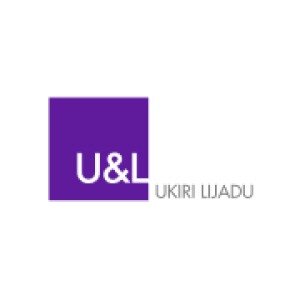Best Employer Lawyers in Maitama
Share your needs with us, get contacted by law firms.
Free. Takes 2 min.
List of the best lawyers in Maitama, Nigeria
Nigeria Employer Legal Articles
Browse our 1 legal article about Employer in Nigeria written by expert lawyers.
- Are Unwritten Employment Contracts Legally Valid and Enforceable in Nigeria?
- A contract of employment can exist whether orally or in writing. It can arise out of any discussion, obligation or instruction to do an act as far as the elements of a contract are present. Agreements are made to be honoured. An unwritten contract is enforceable provided it complies with... Read more →
About Employer Law in Maitama, Nigeria
Maitama, a prominent district in Abuja, Nigeria, is known for its vibrant business environment. Employing individuals or managing workforce issues in Maitama involves understanding and complying with employment laws within the Nigerian legal framework. These laws aim to regulate the relationship between employers and employees, focusing on fair treatment, compensation, workplace safety, and dispute resolution. Employers must adhere to statutory requirements to ensure they fulfill their legal obligations and maintain a healthy work environment.
Why You May Need a Lawyer
Engaging a lawyer for employment-related matters can be crucial for several reasons. Whether you are an employer facing complex employment contracts, disputes with employees, allegations of unfair dismissal, or navigating the nuances of labor regulations, professional legal advice can help you manage these challenges effectively. Legal assistance may also be necessary for compliance with national and district-specific labor laws, handling disputes over wages, and addressing workplace harassment claims. A lawyer can offer guidance to resolve these issues while protecting your organization's interests.
Local Laws Overview
Employer laws in Nigeria are primarily governed by the Labour Act, which outlines the rights and responsibilities of employers and employees. Key aspects relevant to employers in Maitama include the following:
- Employment Contracts: Employers must provide written contracts detailing the terms of employment, including job description, salary, and duration.
- Minimum Wage: Compliance with Nigeria's set minimum wage regulations is mandatory.
- Working Hours and Leave: The law regulates standard working hours, overtime, and provisions for annual leave, sick leave, and maternity leave.
- Termination and Dismissal: Laws provide guidelines on fair termination practices to avoid wrongful dismissal claims.
- Worker Safety: Employers are responsible for ensuring safe working conditions in compliance with health and safety standards.
Frequently Asked Questions
What is the minimum wage requirement in Nigeria?
The national minimum wage in Nigeria is set by the government, and employers must adhere to this statutory minimum in compensating employees.
Is an employment contract mandatory?
Yes, providing a written employment contract is mandatory in Nigeria. It should clearly outline the terms and conditions of employment.
What are the standard working hours?
The standard working hours are typically 40 hours per week. However, it can vary depending on industry standards and individual agreements.
What leave entitlements do employees have?
Employees are entitled to annual leave, sick leave, and maternity leave. Specific durations and conditions apply as per the Labour Act.
What constitutes unlawful termination?
Unlawful termination occurs when an employee is dismissed without due process or for reasons not covered by the employment contract or legal provisions.
Can an employer change the terms of an employment contract?
Employers can propose changes to contracts, but they must be agreed upon by the employee and usually require a formal amendment to the original contract.
How are workplace disputes typically resolved?
Workplace disputes can be resolved through negotiation, mediation, arbitration, or litigation, depending on the nature and complexity of the issue.
What are an employer's obligations regarding workplace safety?
Employers must provide a safe working environment, conduct risk assessments, and comply with health and safety legislation to prevent accidents and injuries.
Are there provisions for employee data protection?
Yes, employee data protection is covered under the Nigerian Data Protection Regulation, which requires employers to ensure the confidentiality and security of personal data.
How can I handle an unfair dismissal claim?
Unfair dismissal claims should be addressed by reviewing the case details and may require assistance from a legal professional to navigate the dispute resolution process effectively.
Additional Resources
There are several resources and organizations that can be helpful for employers seeking legal advice in Maitama:
- The National Industrial Court of Nigeria - handles employment and labor-related disputes.
- The Federal Ministry of Labour and Employment - offers guidance and resources for workplace compliance.
- Professional legal firms specializing in employment law.
- The Nigeria Labour Congress - provides support and advocacy on labor issues.
Next Steps
If you require legal assistance regarding employment issues in Maitama, consider the following steps:
- Conduct preliminary research to understand the specific legal areas affecting your business or issue.
- Consult with a reputable legal firm or employment lawyer with experience in Nigerian labor laws.
- Gather all relevant documentation, such as employment contracts and any correspondence related to the issue.
- Review your organization's existing policies to ensure compliance with current laws and regulations.
- Consider mediation or alternative dispute resolution methods for resolving conflicts amicably.
Taking these steps can help you address employment challenges effectively while ensuring legal compliance and fostering a positive working environment.
Lawzana helps you find the best lawyers and law firms in Maitama through a curated and pre-screened list of qualified legal professionals. Our platform offers rankings and detailed profiles of attorneys and law firms, allowing you to compare based on practice areas, including Employer, experience, and client feedback.
Each profile includes a description of the firm's areas of practice, client reviews, team members and partners, year of establishment, spoken languages, office locations, contact information, social media presence, and any published articles or resources. Most firms on our platform speak English and are experienced in both local and international legal matters.
Get a quote from top-rated law firms in Maitama, Nigeria — quickly, securely, and without unnecessary hassle.
Disclaimer:
The information provided on this page is for general informational purposes only and does not constitute legal advice. While we strive to ensure the accuracy and relevance of the content, legal information may change over time, and interpretations of the law can vary. You should always consult with a qualified legal professional for advice specific to your situation.
We disclaim all liability for actions taken or not taken based on the content of this page. If you believe any information is incorrect or outdated, please contact us, and we will review and update it where appropriate.









